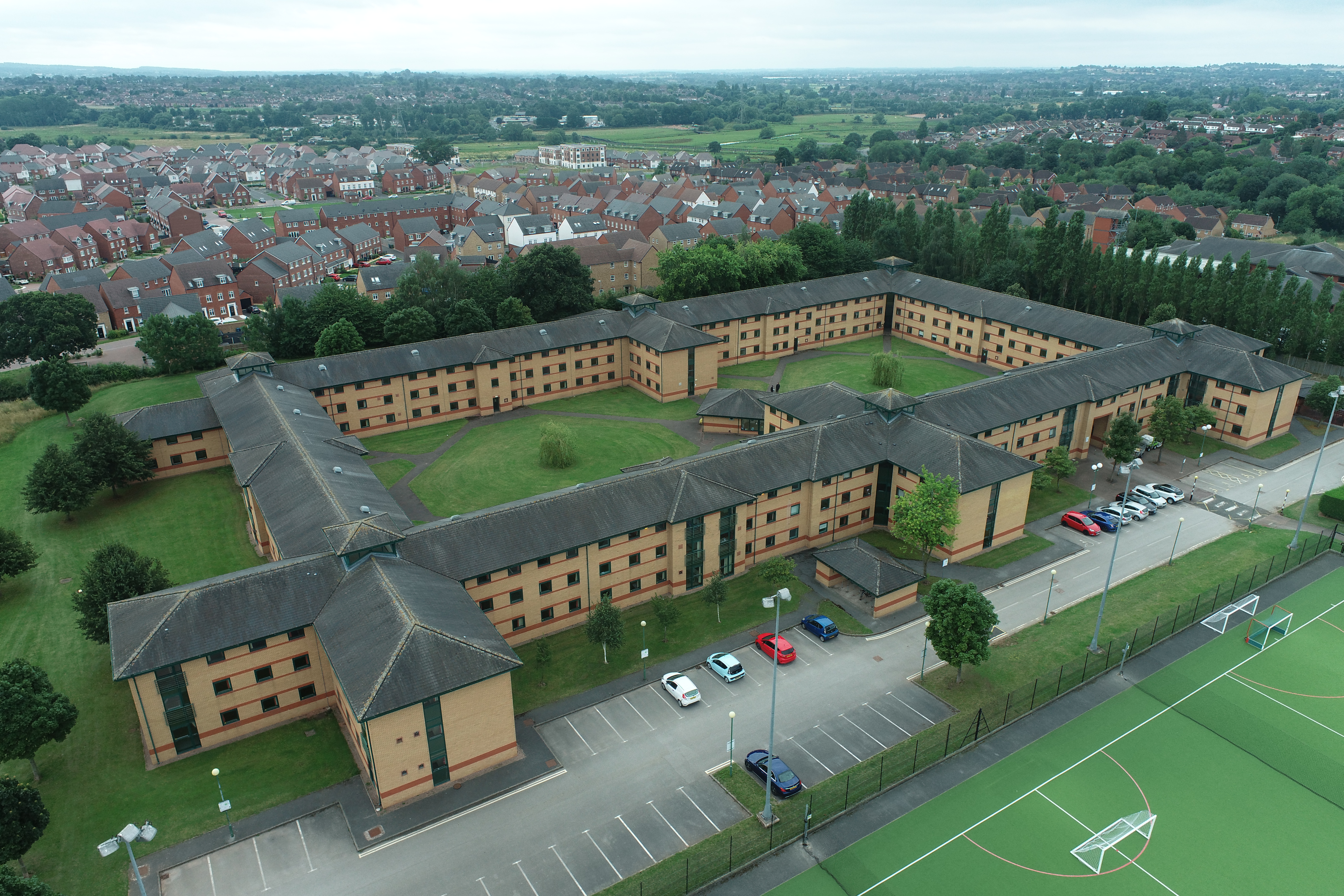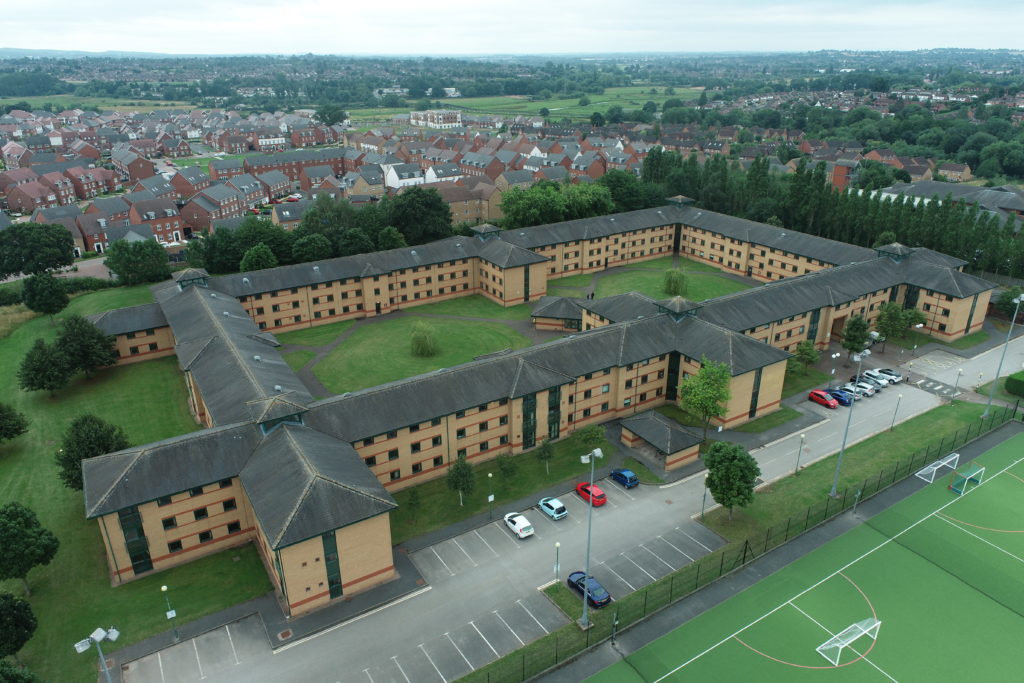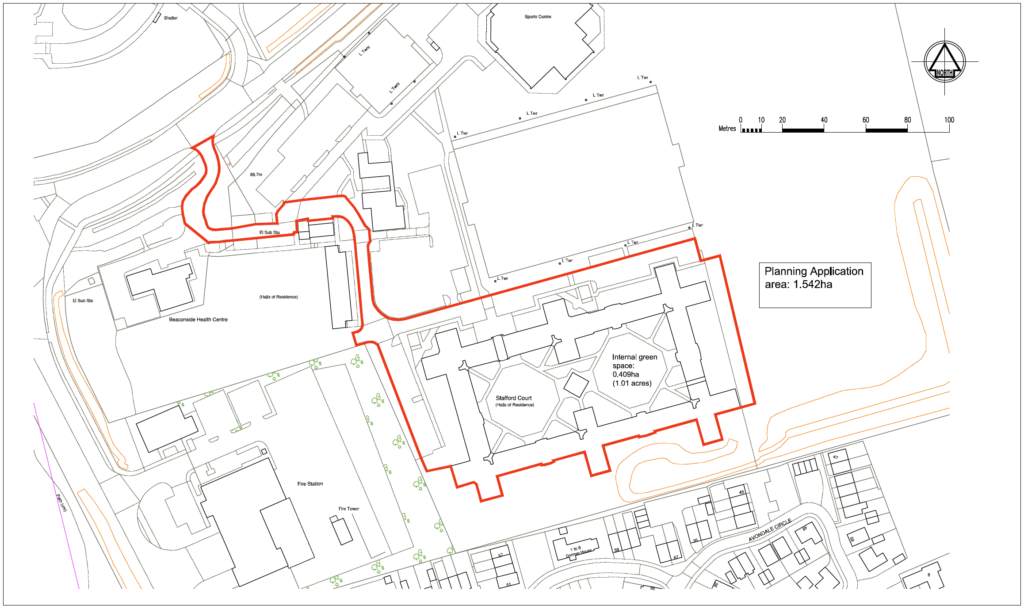
Proposed change of use to Stafford Court, Beaconside
Proposed change of use to Stafford Court, Beaconside
Serco is bringing forward a change of use planning application to repurpose the Stafford Court student accommodation buildings on Weston Road, Beaconside.
The proposals are for an Initial Accommodation Centre (IAC) and Dispersed Accommodation (DA) for asylum seekers.
The overall number of bed spaces in use at Stafford Court would be reduced from its current capacity of 556 to 482 bed spaces comprising the following mix:
- Initial Accommodation – 160 beds
- Dispersed Accommodation – 322 beds
There will be no external alterations to the current building or surrounding environment.

Site location
The proposed site is occupied by the former Stafford Court student accommodation buildings on Weston Road, Beaconside, Stafford. It is these existing buildings that Serco seeks to repurpose via a change of use planning application.
The buildings previously formed part of a wider campus site owned by Staffordshire University. The University sold Stafford Court in 2014 following the closure of its campus in this location. Since then, the majority of the accommodation has remained vacant.
Land to the north of the site comprises indoor and outdoor sports facilities. To the east of the site is open countryside. To the south of the site is a new housing development and over the road to the west of the site is Stafford Fire Station.
Stafford town centre is approximately 3km from the site and has bus stops within a three-minute walk of Stafford Court on Weston Road and Hydrant Way; provide regular connections to the town centre, Stafford Railway Station, and the wider area.
The need for this type of accommodation
The Home Office provides accommodation and support for asylum seekers and their families while their cases are processed, under the UK Government’s international obligation to support asylum seekers who would otherwise be destitute.
As a result of the Covid-19 pandemic, there has been an increasing demand for accommodation facilities for asylum seekers. National lockdowns meant that no asylum seekers left the Asylum Accommodation and Support Services Contracts system, although many continued to enter it. This resulted in thousands of people being accommodated in hotels across the UK and an increased demand for a longer-term solution.
There are 95 local authorities throughout the UK that have entered voluntary agreements with the Home Office, accepting the dispersal of asylum seekers. By population, Stafford Borough Council is the fifth largest of twenty Local Authorities within the West Midlands which does not facilitate the accommodation of asylum seekers.
Asylum seekers are housed across the UK in accordance with a ratio set by the Home Office at one asylum seeker for every 200 of the settled population. Currently Stafford Borough Council operates at 0% of this limit in contrast to other local authorities such as Liverpool and Derby which operate at over 80% and Birmingham which operates at 44%
N.B all figures accurate in October 2021
Why Stafford Court?
The existing building configuration at Stafford Court is ideal to host this type of facility. The building offers self-contained clusters providing flexibility and the ability to offer protection to occupants with no external alterations to the building necessary.
The existing car parking provision provides ample secure parking space for transport, staff and visitors and under the terms of any lease granted, Serco would have exclusive use of thirty car parking spaces adjacent to Stafford Court.
Once operational, a shuttle service would be provided for people staying at the accommodation to allow journeys to and from appointments and nearby urban centres.
About Serco
We have provided housing and support for asylum seekers in the community in the UK since 2012 ensuring safety and respect to some of the most vulnerable people in society while they await news on their immigration status. We maintain constant links with those in our care by giving them a well-known human point of contact to which they can turn if they need help. We also ‘sign-post’ asylum seekers to relevant local authority and voluntary welfare, education, and health services so that they can get wider support whilst their asylum claim is assessed.

